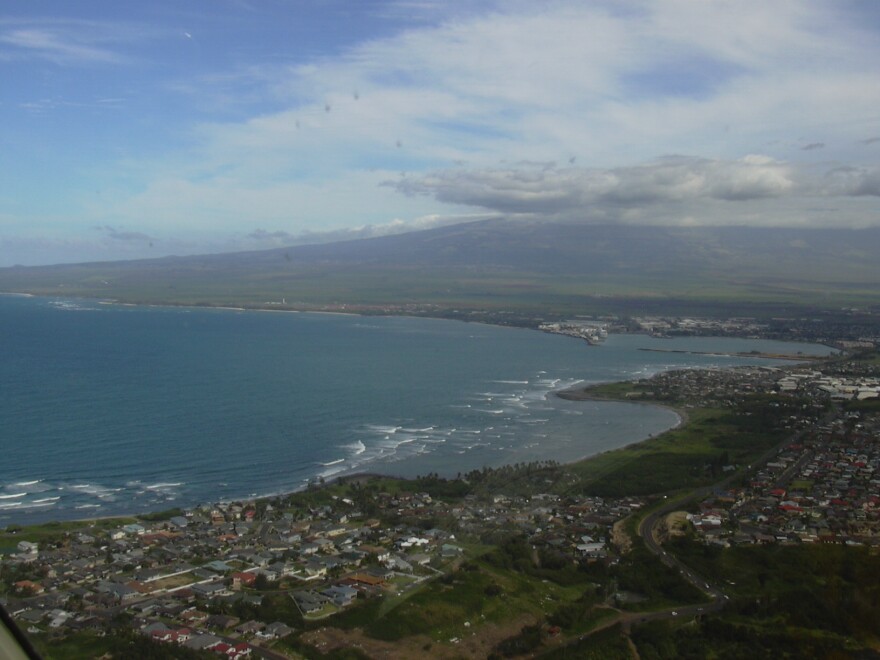An affordable housing project on the Valley Isle that needed Maui County Council's approval to move forward is facing complications.
Hale Mahaolu Ke Kahua would create 120 one-, two-, and three-bedroom units on an 11-acre parcel in Waiehu. It aims to help residents who earn between 30% and 60% of the area median income — or between $21,000 and $44,000 a year.

Last week, the Maui County Council's Housing and Land Use Committee did not approve a measure giving exemptions to the contested project. Members voted 3-2 in favor of the project, but that wasn't enough for the county's approval.
East Maui Councilmember Shane Sinenci and Molokaʻi Councilmember Keani Rawlins-Fernandez voted against the measure.
"This project lacks some sufficient infrastructure," Sinenci said.
Sinenci stated that Kahekili Highway needs adequate sidewalks and bus stops before development can proceed.
There is unanimous agreement among councilmembers that there is an urgent need for affordable housing in the county. However, this decision will delay the project, leaving it with an uncertain future.
"We were hoping that we would garner enough votes to get the project approved by the committee. But we are not surprised," said Debbie Cabebe, CEO of the nonprofit Maui Economic Opportunity, Inc.
Contesting the land title
Maui Economic Opportunity, Inc. acquired the land in 2005 from Stanford Carr as a gift.
Over the years, MEO left the parcel untouched to decide what it could do with the land. Through multiple community surveys, Cabebe said affordable housing was always a top priority for residents.
MEO announced a partnership with Hale Mahaolu and Highridge Costa in 2020 to help develop the parcel of land.
That's when a group of Native Hawaiians came forward to oppose the project. The heirs of a man named Pehuino challenged MEO's title, claiming Pehuino acquired the land during the Great Mahele and that their kupuna are buried on the property.

According to an Office of Hawaiian Affairs database, Pehuino’s stake doesn’t overlap with MEO’s property, but is instead on a neighboring parcel. Records show the nonprofit’s title can be traced back to King William Lunalilo instead.
"We have the documents that clearly show the chain of custody for the property," said Cabebe. "We don't believe that there's a break in the chain. They've never given us any documents to dispute that."
The issue went to circuit court, after descendants of Pehuino camped on the property to protest the development. MEO sought to evict the group for trespassing, which the court ruled in favor of.
Although Sinenci and Rawlins-Fernandez acknowledged MEO's intent to support residents, both stated concerns regarding the land's title and how the project wouldn't disrupt iwi kupuna.
"When we say that these units would benefit those who are not as fortunate, you have to ask the question 'Why are they not as fortunate?'" Rawlins-Fernandez said.
The heirs of Pehuino testified in previous committee meetings stating that they plan to appeal the circuit court decision ruling in favor of MEO's land entitlement.
"We're very respectful of this community ... We never want to do anything that's going to hurt people," said Cabebe on behalf of MEO. "However, we can't give one family's concerns more weight than the benefit to more than 300 individuals and families that will benefit from this project."
'Rare opportunity' to address the housing crisis on Maui
According to real estate firm Locations Hawaiʻi, the average sales price for a single-family home on the island in February was $1.1 million.
"We need housing. I drive to work every day, and I see homeless encampments growing along the beach line. And it's not people who are chronic homeless," said Cabebe.

"This was a rare opportunity, where we had an asset that we could use to support affordable housing," she said.
Cabebe added that the plans for Hale Mahaolu Ke Kahua would have eventually addressed the infrastructure and flooding concerns.
In an effort to compromise, Sinenci proposed the project either scale down or move to another location under a county land swap. However, those were rejected by MEO, which Cabebe said was because the project was tailored for the 11-acre parcel.
"[Hale Mahaolu and Highridge Costa] spent significant money with the site plans, with the environmental impact, with cultural studies, with traffic studies," she said. "So to move the project to someplace else, none of that will be applicable. You would have to start completely over."
If a land swap were to occur, she estimates it would take MEO and its partners between 5 to 10 years to have the development completed. But if it doesn't get approved, Cabebe said it's likely the building won't happen.
The project will not likely be heard again at the council before April 22, at which time, will go to the county's housing director, Lori Tsuhako. She will have two weeks to decide what happens next.






